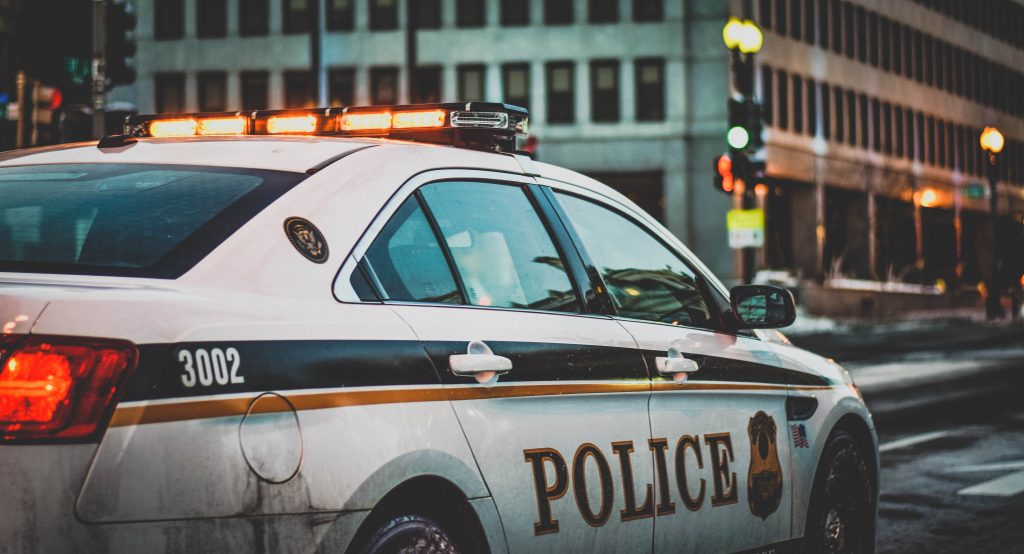How Much Does a Traffic Lawyer Cost?

Many of us have found ourselves with a traffic ticket in hand, wondering what to do next. Is it cheaper to just pay the ticket or fight it? Is it the principle of the matter, or is it really going to be more beneficial in the end to hire a traffic lawyer and attempt to get out of the ticket? To answer these questions, it’ll be necessary to look at the types of traffic violations, how much they could cost you, how much a traffic lawyer would cost, how traffic lawyers charge, and what penalties you’re facing if you lose the case. Even if you find yourself fighting to prove your innocence, there are quite a few defenses you can use to make your case.
Types of Traffic Violations
To determine what type of ticket you have and the penalties you’re facing, it’s important to understand the types of traffic violations and their resulting tickets. A traffic infraction is when you violate any type of law involving vehicle operations. These infractions can be separated as moving or non-moving violations, as well as criminal and non-criminal. A minor traffic infraction will likely remain a civil matter, while criminal violations may result in misdemeanor or even felony charges, depending on how severe the crime was and if anyone was injured in the process. Some of the most common minor violations include:
- Speeding
- Illegal parking
- Distracted driving
- Tailgating
- Unsafe lane change
- Overdue parking meters or tickets
- Failure to signal
- Failure to stop or yield
- Failure to use proper lighting
- Seat belt violations
- Turning into the wrong lane
- Unlawful use of handicap parking spots
Some of these are violations that occur while the vehicle is in motion, while others happen with a parked vehicle. Moving violations are usually taken a bit more seriously than non-moving violations, likely as a moving vehicle can be more dangerous than one in place, so the risk is worse, making the infraction more severe.
An important concept to note when discussing any civil charge is strict-liability, which refers to an infraction or crime that doesn’t require intent to be prosecuted. This isn’t as common in criminal law, as intent must often be proven in order to obtain a conviction. However, many traffic violations don’t even require the driver to be aware that they were committing an infraction at all.
Some traffic violations can result in misdemeanor charges, sometimes even just more severe cases of the minor infractions listed above. Most of the time, it’s when someone commits a crime using their vehicle that results in the injury or death of a person or damage of property, as well as even just an action that leads to the threat of injury or death of a person or damage of property. Some of these traffic crimes that could become misdemeanors include:
- Driving under the influence
- Reckless driving
- Driving without insurance
- Driving without a license
- Leaving the scene of an accident
- Obstructing traffic
- Disturbing the peace with excessively loud music or other vehicle noises
Additionally, failing to properly address a minor traffic violation could elevate it from a civil charge to a criminal one, meaning it’s important to attend all court dates and make all arrangements to fulfill the penalties that come with your sentence. In serious cases, typically where the injury, damage, or threat was particularly severe, these charges could be escalated to a felony charge, which can result in the loss of several rights and prison time. This could also include cases where the defendant has been found guilty of the crime, or any other serious crimes, in the past that would serve to enhance the sentence. Vehicular manslaughter would be an example of a traffic crime that would likely come with a felony conviction, as well as DUIs, evading law enforcement, and hit and runs.

What Do I Do When I Get a Traffic Ticket?
To determine the process you will have to follow, it will greatly depend on your state. However, to generally get an idea of the process, the types of traffic tickets can be divided into three main categories:
- Parking tickets
- Civil infraction traffic tickets
- Criminal traffic tickets
In all cases, you’ll pretty much have four options:
- Plead guilty and pay the fine: This is an option in all cases.
- Pay for and attend traffic school: There will likely be some limit on how much time you must wait in between each traffic school attendance. Additionally, this is usually only an option for violations that aren’t too serious and first time offenders.
- Provide proof that you have corrected the issue: This is only applicable as a solution in cases of correctible violations.
- Appear in court and defend your case: This may require you to hire a lawyer or provide your own defense in court but will likely be required if you want to fight the ticket.
No matter what type of ticket you’ve received or how serious you think it may be, it’s best to take care of the ticket right away, as putting it off could result in charges and penalties much more severe than were initially on the table.
Parking Tickets
These probably won’t have anything to do with the court – unless you’re going to fight it. You’ll likely be able to pay the parking ticket online, but just contact the parking agency that you received the parking ticket from, and they can let you know what you need to do to get it taken care of. They can also inform you what to do in order to fight the ticket, if you decide that that’s what you want to do. This will usually require you to present proof that you didn’t commit the parking violation in front of the court. This is when it may be beneficial to get a lawyer, but only if you really think the benefits of winning the case outweigh the cost of the lawyer, which we’ll discuss later.
You want to take care of any parking tickets you get as soon as possible, as it’s likely that you’ll be charged late fees and various other penalties if you take too long to pay. If you go without paying too many tickets, you probably won’t be able to renew your car registration, and you may find yourself with a boot on your car one day.
Civil Infraction Traffic Tickets
In the case of these other traffic violations that don’t quite reach the status of criminal, you’ll find yourself with an infraction ticket with civil charges. When the officer gives you the ticket, you will have to sign the ticket. While this doesn’t admit your guilt, it does indicate that you recognize that you must appear at court to fight the ticket or pay the fine within a certain number of days.
The process for these tickets is pretty similar to a parking ticket, except all of your dealings will likely be through the court versus a parking agency. Yet you may still be able to pay your ticket online if you aren’t planning on fighting it. Like the parking ticket, if you believe you’ve received it unjustly and you want to challenge it, you will have to contact the court in order to present them with your evidence of why you aren’t guilty and shouldn’t be required to pay the ticket.
These tickets may also stack up, and it’s possible criminal charges could be pressed against you if you fail to appear in court – this may also put you in risk of a boot. These tickets will only require a lawyer if you think you could benefit enough from not having the ticket on your record or paying the fine.
Criminal Traffic Tickets
If you commit a criminal traffic violation, you risk being arrested and brought to jail to await a trial, which may require paying bail. In other less serious cases, you’ll likely just be asked to sign the ticket verifying that you will show up for court on the date assigned. The difference here is that you’re probably going to have to attend court, even if you plan to just plead guilty. If you fail to attend court, your misdemeanor could be increased to a felony and a warrant may be put out for your arrest.
In these cases, you have the right to a lawyer, so even if you can’t afford one, a criminal defense attorney will be appointed to you. In this case, you likely will benefit more from obtaining a good lawyer, as this can be the difference between you spending time in jail and a permanent blemish on your record.

Penalties for Traffic Tickets
While punishment will vary based on what state you’re in, most states will have similar systems. Some general penalties associated with traffic violations include:
- Suspension or loss of driver’s license
- Points added to record
- Higher insurance rates
- Vehicle towed or impounded
- Required traffic school
- Fines
For a non-criminal traffic violation, the fine may run anywhere from $50 to $500. Your past driving record and criminal history will likely be factored into your penalty, as repeatedly committing a traffic violation will come with increased penalties.
Once a traffic violation becomes a misdemeanor, jail time is a possibility – but only up to a year. These fines can be thousands of dollars, and it’ll likely affect your driver’s license status. In DUI cases, the defendant may be required to install a breathalyzer in their vehicle.
If it reaches a felony charge, the incarceration time can be anywhere from one year to life in prison, as this will include cases where severe injury or death occur. This could come with a permanent revocation of your license and all of the other common felony consequences, such as loss of civil rights – the right to vote and own firearms – and a permanent mark on your criminal and driving record. However, this is all reserved for severe cases.
How Much Does a Traffic Lawyer Cost?
So you’ve decided that you want to look into fighting the ticket. The question is how much it’s going to cost you because, in some cases, it’ll cost you more time and trouble to hire a lawyer than it would be to pay the fine. As is typically the case with lawyer fees, the cost is going to vary greatly based on how serious your crime is, how much time and effort it’s going to require, and the area you live in. However, in general, a minor traffic offense could cost you anywhere from $50 to $1,000 in lawyer fees. Criminal cases will cost a bit more, perhaps thousands of dollars for the best defense; although, remember, you have the right to a free attorney in a criminal case.
Is It Worth It?
The question here also depends on how severe the charges are and what penalties you’re up against. In criminal cases, it’s almost always going to be beneficial to have an attorney on your side. However, in the case of a minor traffic violation, it’s best to do your research and see how much the fine will be versus what the lawyer will cost you. This will also require for you to consider any increase you may receive on your monthly insurance costs, any time you’ll have to take off work to handle the case, and any other costs and difficulties you may run into in the process. Consider that the attorney will probably be able to handle any court appearances you may be required to make and that they can possibly at least get you a reduction in charges even if you’re guilty.

Defenses for Traffic Violations
Whether you hire a lawyer or not, you may find yourself having to come up with a defense for your violation to either remove the charges altogether or lessen the penalties. The best case scenario is that your officer doesn’t show up to court to prove your guilt, as the judge will typically dismiss the charges, as long as they aren’t anything too serious.
If you were caught with a traffic camera and no actual officer interaction, you may be able to argue that they have no way of proving that you were the one actually committing the infraction. This is even more likely if the court doesn’t want to bother going through the work of retrieving the photo of you committing the violation.
In the cases of parking violations particularly, but also all other cases when possible, take as many pictures as you can to prove your innocence and be sure to bring them to court. This can be helpful in cases where you made a genuine mistake because of faded traffic markers or parking lines, obstructed traffic signs, or other simple errors. Especially if you can challenge the officers observations and submit more evidence than they can, you may find yourself being able to prove your innocence. While the cop usually does win when it comes to “he-said, she-said,” evidence can be a huge factor in a winning case.
You may also find yourself able to argue that there was a good reason for your infraction, particularly speeding tickets, such as a medical emergency, an obstruction that requires you to take evasive action, or you were otherwise trying to prevent harm. This doesn’t include being late for work, talking on your cell phone, or eating while driving. In fact, these may make your case worse.
It’s important to note again that simply claiming you didn’t know you were committing a traffic infraction isn’t going to be enough, as civil cases don’t require for you to intend to commit the crime.

Making Decisions
The process of taking care of your traffic violation will require many decisions, beginning with whether you will plead guilty and pay the fine or fight it. You then must decide if it’s worth hiring a lawyer to help plead your case. Then, you’ll need a defense for why you aren’t guilty, which you’ll probably have to present to the court. If you’re found guilty, consequences for minor infractions will likely just be a fine or traffic school, but criminal convictions can come with jail time and permanent marks on your record. In these cases, the cost of hiring a lawyer may be worth it to increase your odds of beating the charges and properly pleading your case. Become familiar with your crime, figure out what penalties you’re up against, and research how much a lawyer will cost in your area to decide if hiring an attorney is the right decision for you.



